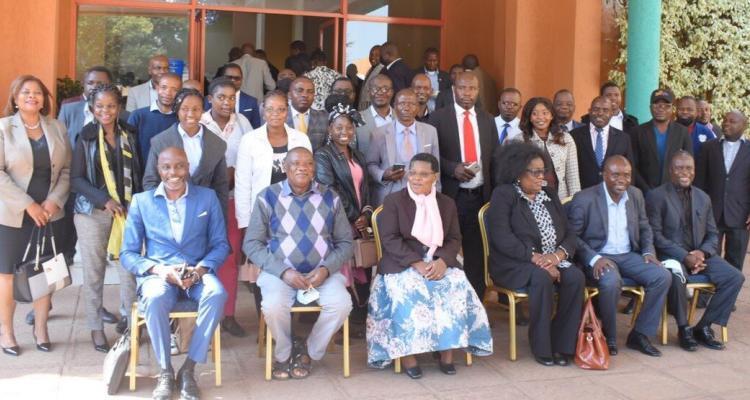
Council for Non-Governmental Organizations in Malawi (CONGOMA), in collaboration with NGO Regulatory Authority (NGORA), formerly known as NGO Board of Malawi, have kick-started awareness of what they call “the real facts” in the NGO Amendment Act of 2022.
CONGOMA and NGORA held the first awareness meeting in Lilongwe, which attracted scores of NGO and CSO leaders.
The two bodies have since called upon more NGOs and Civil Society Organizations (CSOs) to avail themselves at the meetings, stressing that it is important to “move together happily as one NGO family”.
The Lilongwe meeting, among other things, was aimed at briefing NGOs on the implications of the amendment act to ensure that all stakeholders are on the same page with CONGOMA which is a membership umbrella organization and coordinating body for NGOs and NGORA which is a state-owned registrar and regulator of all NGOs and CSOs.
In his remarks, Vice Chairperson for CONGOMA Governing Council, Dalitso Kubalasa, said the awareness meetings aim at encompassing everyone in order to move together as “one strong NGO family which seeks to be a better servant of the people”.
“These are matters of the law. We noted that some stakeholders lacked information, hence the awareness meetings. It is important that we all move together, sort any outstanding issues and see how best we can exploit any opportunities out of the amended law,” Kubalasa said.
NGORA Vice Board Chairperson, Nina Ghambi, emphasized the importance of the awareness meetings, saying those being regulated by the new law need to be aware of the contents of the amendments.
“The process is ongoing. It is encouraging that NGOs turned out in large numbers. There is still room for inputs, more especially on formulation of regulations to support the implementation of the law. Stakeholders still have the opportunity to ask questions and seek clarity,” Ghambi said.
The NGO Act of 2022, which underwent “all inclusive” consultation and engagement processes spanning six years, passed in Parliament and assented by President Lazarus Chakwera early this year amid protests from some CSOs, including Centre for Human Rights and Rehabilitation, Centre for the Development of People, Human Rights Defenders Coalition and Youth and Society.
Besides expected improved regulation and coordination of the NGO sector, the amended law has also changed the name of the NGO Board of Malawi to NGO Regulatory Authority, with its functions enhanced in order to ably fulfill its mandate.
It has also, among many other things, maintained the separation of regulation and coordination functions as was the original scheme of the NGO Act between CONGOMA and NGORA, respectively. It has retained the same functions for CONGOMA and NGORA as is currently the case in the principal act.
The law has also heightened the centrality of the trustees or directors of a registered NGO in the accountability and business of the NGO, as now the courts will have options to prosecute both the NGO as a corporate and /or the Trustee or Director of an offending NGO as the case may be.
At the Lilongwe awareness meeting, Executive Director for Mustard Seed Organization, McGeofrey Mwale, called upon CONGOMA and NGORA to indeed conduct more of such meetings.
“And let the sensitizations be clear and focused. Clear enough, including the differences between CONGOMA and NGORA and their functions. Like that, we will be on same page indeed and rightly moving forward,” Mwale said.
Executive Director for Citizen Goal Guidance, Noel Kanthenga, concurred with Mwale, adding that CONGOMA and NGORA should, under the new law, always seek to create a conducive working environment for NGOs and CSOs.
“The law should not become a burden to some organizations so that they should end up closing,” Kanthenga said.
Follow us on Twitter:














